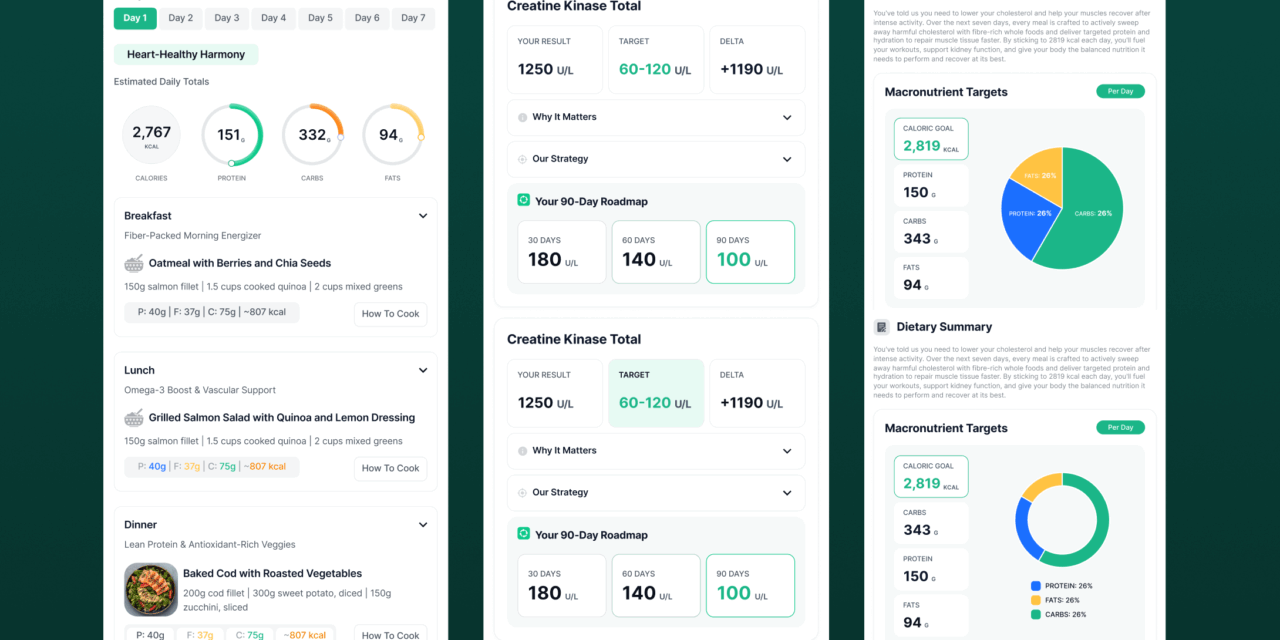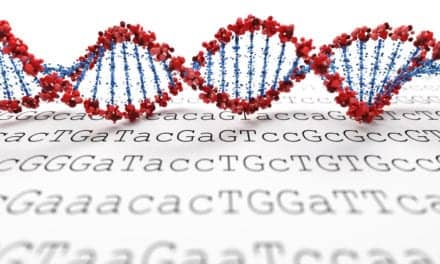BloodGPT’s new feature provides biomarker-based nutrition plans alongside automated lab result analysis for clinical laboratories.
BloodGPT has launched nutrition integration capabilities for its AI-powered lab result interpretation platform, adding personalized nutrition plans based on patient biomarker data to its existing diagnostic laboratory services.
The Delaware-based company’s platform now generates nutrition recommendations alongside lab result interpretations, targeting what the company identifies as a gap in patient follow-through on abnormal test results. According to BloodGPT, 71% of patients who receive clear explanations of abnormal lab results follow up with physicians, compared to 49% who see raw data alone.
The nutrition feature analyzes patient bloodwork against clinical ranges to build meal plans connected to specific biomarker readings. The system incorporates lifestyle surveys to personalize recommendations and allows patients to track changes in subsequent tests.
“Over 10% of global deaths are associated with poor diets. It’s high time we changed our approach to nutrition guidance,” says Nikita Udovichenko, BloodGPT co-founder, biochemist, and endocrinology expert, in a release. “In healthcare, there’s no such thing as neutral; if you ignore a problem, it gets worse over time. With BloodGPT, patients see how their choices move the needle on real biomarkers, and professionals can choose to use these insights to help deliver more precise, evidence-based care.”
Platform Targets Clinical Efficiency
The company estimates its platform could save 600 physician hours and deliver nearly 800% ROI in clinics processing 20,000 tests monthly. The system highlights biomarker readings outside normal parameters and generates recommendations with minimal additional clinical resources.
Both healthcare providers and patients can use the platform. Clinical laboratories can integrate the service into their reporting workflow, while patients can upload existing lab results directly for analysis.
The nutrition recommendations draw from what the company describes as a curated database of approved foods and a structured decision framework. Unlike generic wellness applications, the system bases recommendations on specific biomarker data rather than general dietary guidelines.
Udovichenko, who led the nutrition plan implementation, has 17 years of experience in medicine, nutrition, and performance coaching. The company says he has previously provided wellness guidance to 20,000 clients, including Olympic athletes.
Photo caption: BloodGPT interface
Photo credit: BloodGPT




